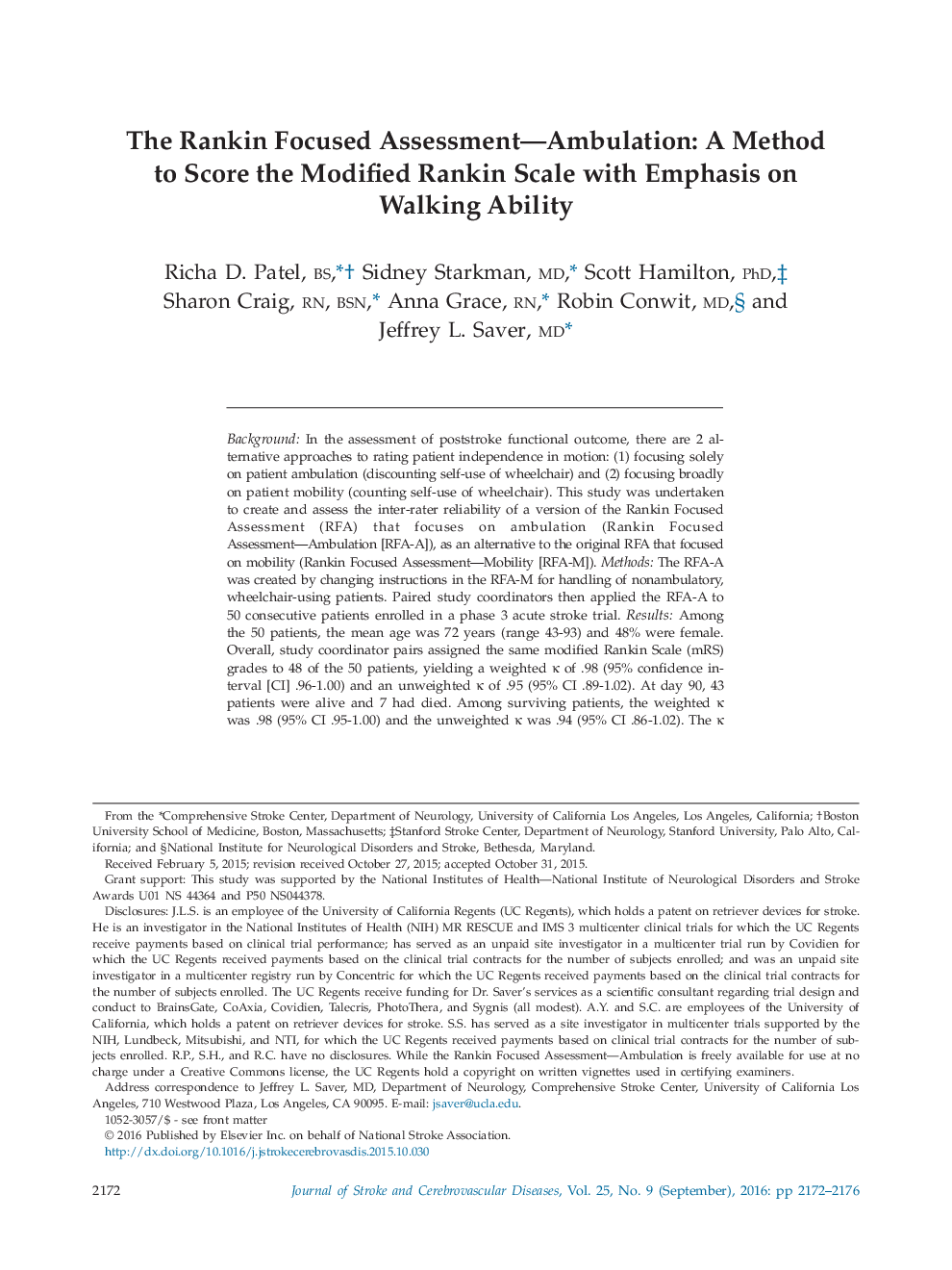| Article ID | Journal | Published Year | Pages | File Type |
|---|---|---|---|---|
| 2703667 | Journal of Stroke and Cerebrovascular Diseases | 2016 | 5 Pages |
BackgroundIn the assessment of poststroke functional outcome, there are 2 alternative approaches to rating patient independence in motion: (1) focusing solely on patient ambulation (discounting self-use of wheelchair) and (2) focusing broadly on patient mobility (counting self-use of wheelchair). This study was undertaken to create and assess the inter-rater reliability of a version of the Rankin Focused Assessment (RFA) that focuses on ambulation (Rankin Focused Assessment—Ambulation [RFA-A]), as an alternative to the original RFA that focused on mobility (Rankin Focused Assessment—Mobility [RFA-M]).MethodsThe RFA-A was created by changing instructions in the RFA-M for handling of nonambulatory, wheelchair-using patients. Paired study coordinators then applied the RFA-A to 50 consecutive patients enrolled in a phase 3 acute stroke trial.ResultsAmong the 50 patients, the mean age was 72 years (range 43-93) and 48% were female. Overall, study coordinator pairs assigned the same modified Rankin Scale (mRS) grades to 48 of the 50 patients, yielding a weighted κ of .98 (95% confidence interval [CI] .96-1.00) and an unweighted κ of .95 (95% CI .89-1.02). At day 90, 43 patients were alive and 7 had died. Among surviving patients, the weighted κ was .98 (95% CI .95-1.00) and the unweighted κ was .94 (95% CI .86-1.02). The κ values for all 6 dichotomizations of the mRS score ranged from .93 to 1.00.ConclusionsThe RFA-A demonstrates high inter-rater reliability in grading global functional outcome. The RFA-A is a useful tool for assigning an mRS score in research and clinical practice when functional assessment focused on ambulation is desired.
